"Central Asian Pastures: Global Challenges and Global Opportunities": Purpose, Process and Analysis
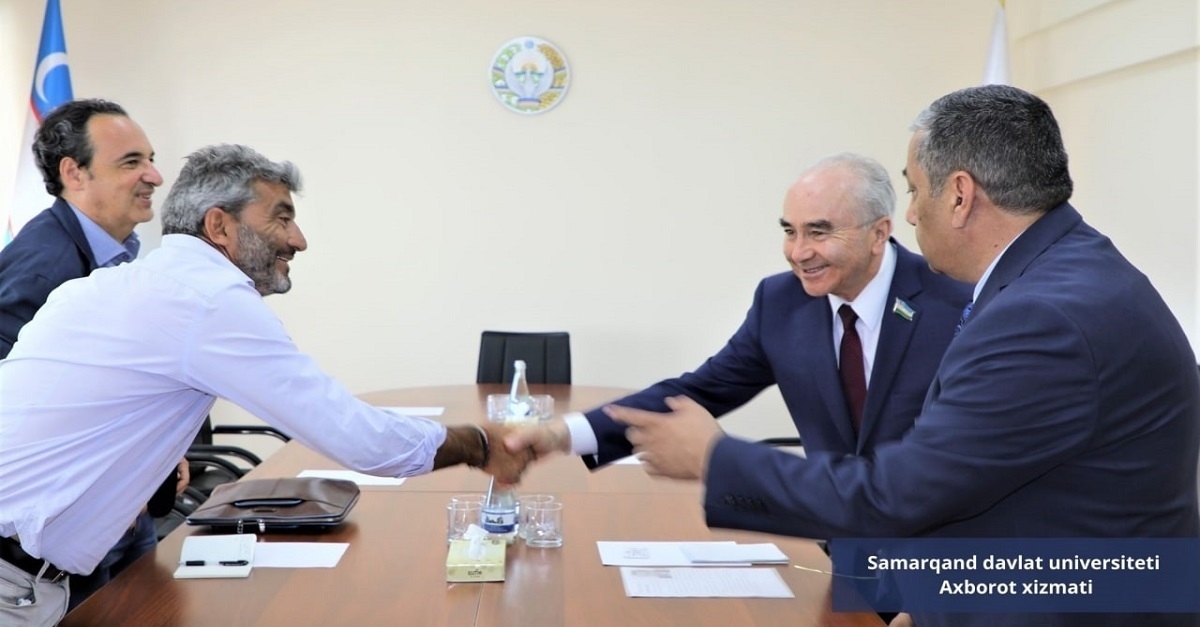
On November 15-16, Samarkand State University will host an international scientific and practical conference on the topic "Meadowlands of Central Asia: global problems and global opportunities." Associate Professor Tashpolat Rajabov, Director of the Institute of Agrobiotechnologies and Food Safety of Samarkand State University, answered some questions related to the purpose and organizational processes of this conference.
- What are the main objectives of the conference "Grasslands of Central Asia: Global Challenges and Global Opportunities"?
- This conference is aimed at improving pasture management in the countries of Central Asia based on international experience, the exchange of knowledge and experience between foreign and local scientists and specialists in this field, and the unification of ideas.
To date, there are a number of problems in this direction that are waiting for their solution. For example, pasture assessment methods have not been improved to date, moreover, the scientific basis for assessing pasture degradation and its various stages has not been developed, research and funds allocated for this are not enough. The shortage of personnel in the field of pastoral science is one of the biggest problems. To date, in higher educational institutions of the republic there is only 1 bachelor's specialty related to the pasture sphere (Plantology (pasture-desert plant science) and 1 master's specialty (Pasture phytomelioration), and only 2 will be allocated a total of 31 quotas in this area at the university. If look at world experience, then in the United States, where pastures are widespread, by 2020 at 25 universities there will be a system of awarding bachelor's, master's and Ph.D. degrees in pasture ecology and management. developed pasture science in the world, especially the USA, Australia, Germany, Iceland, etc. There is a great need to create separate departments and faculties specializing in this area.
It is necessary to strengthen the legal and regulatory framework for pasture management in our republic in order to comply with the permitted norms for pasture use and strictly control the pasture use system.
The main goals and objectives of the conference are also focused on such issues.
- Representatives of which world universities are participating in the conference?
- Since this conference is international in nature, it is expected that representatives of prestigious universities located in different countries of the world will take part in it. For example, the University of Nevada (Reno) in the United States, Tottori and Kyoto Universities in Japan, the Agricultural University in Iceland, the University of Rostock in Germany, the Chinese Academy of Sciences, the University of Szeged in Hungary and among them the Institute of Botany and Ecology, Eskisehir Osmangazi University in Turkey, Mongolian University of Natural Sciences, Belgrade University and Moscow State University of Russia.
- Please tell us about the sections of the conference, what issues of pasture ecology and pasture science are supposed to be discussed at them?
- Conference "The current state of pasture science and its new directions", "Socio-economic problems of pasture management", "Pasture animal husbandry and prospects for its development", "Pasture ecology: protection of plants, soil and wildlife". "works is divided into branches such as
- What is the general condition of pastures in our country today? How do you assess the role of the conference in solving these problems?
- The natural vegetation cover of pastures, which occupy 47% of the total land area of our republic, is in great danger today, their area is rapidly declining. According to experts, over the past 25-30 years, 50-70 percent of the pastures of the republic are in a crisis state, 11 million hectares of pastures have lost their potential for the production of renewable feed and have become unsuitable for livestock use.
As a result of the crisis of pastures in the context of aggravating climate change, the ecological situation in these areas has worsened. As a result, the level of drought is increasing, soil erosion is increasing, and the speed of dust storms is increasing day by day. This situation will seriously affect the lifestyle and health of not only 4 million people living on these pastures, but also people living in other regions of our republic.
In recent years, these problems have arisen due to the fact that in the process of using pastures their economic potential was not taken into account, scientifically based procedures and norms for pasture use were not observed. Also, the destruction of vegetation cover on grazing areas in this way leads to a number of disturbing consequences. In particular, the loss of natural vegetation cover will drastically reduce the climate change mitigation potential of pastures. This leads to further deterioration of the ecological situation in these areas and has a great negative impact on the healthy lifestyle of the population. In addition, the annual increase in the scale of the pasture crisis causes a shortage of fodder in the area. As a result, the opportunities to engage in animal husbandry, which is the main source of income for the local population, will be sharply limited. From this point of view, the pasture crisis leads to a number of environmental and socio-economic problems. There are a number of tasks associated with solving these problems. The conference makes it possible to find solutions to such issues from an international point of view, to use the experience of developed countries in this regard, as well as to exchange ideas and proposals on important topics.
- According to information, practical seminars will be organized in some pastures of Samarkand within the framework of the conference. Please clarify this...
- On the third day of the conference on the Karnobchol pastures of the Samarkand region, together with the University of Nevada, USA and the Uzdaverloikha Institute of the Ministry of Agriculture of the Republic of Uzbekistan on pasture assessment using modern environmental concepts and smart technologies (drones) - an educational seminar will be held. Also, during the field seminar, it is planned to plant seeds of pasture plants on 20 hectares of crisis zones within the framework of the Green Space national project. In the future, it is planned, together with international partners, to turn this territory into an experimental station of the Arid region of SamSU.

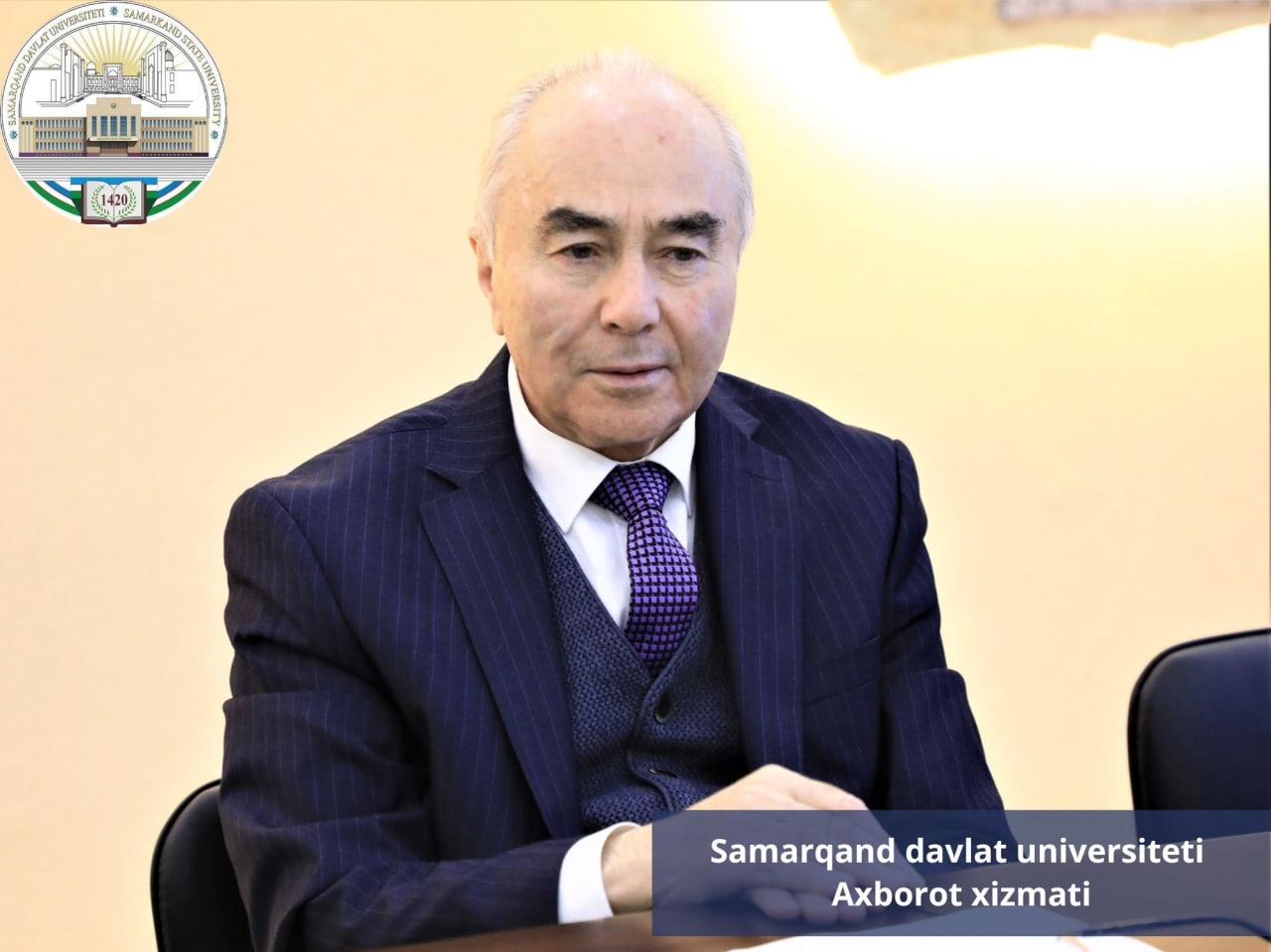
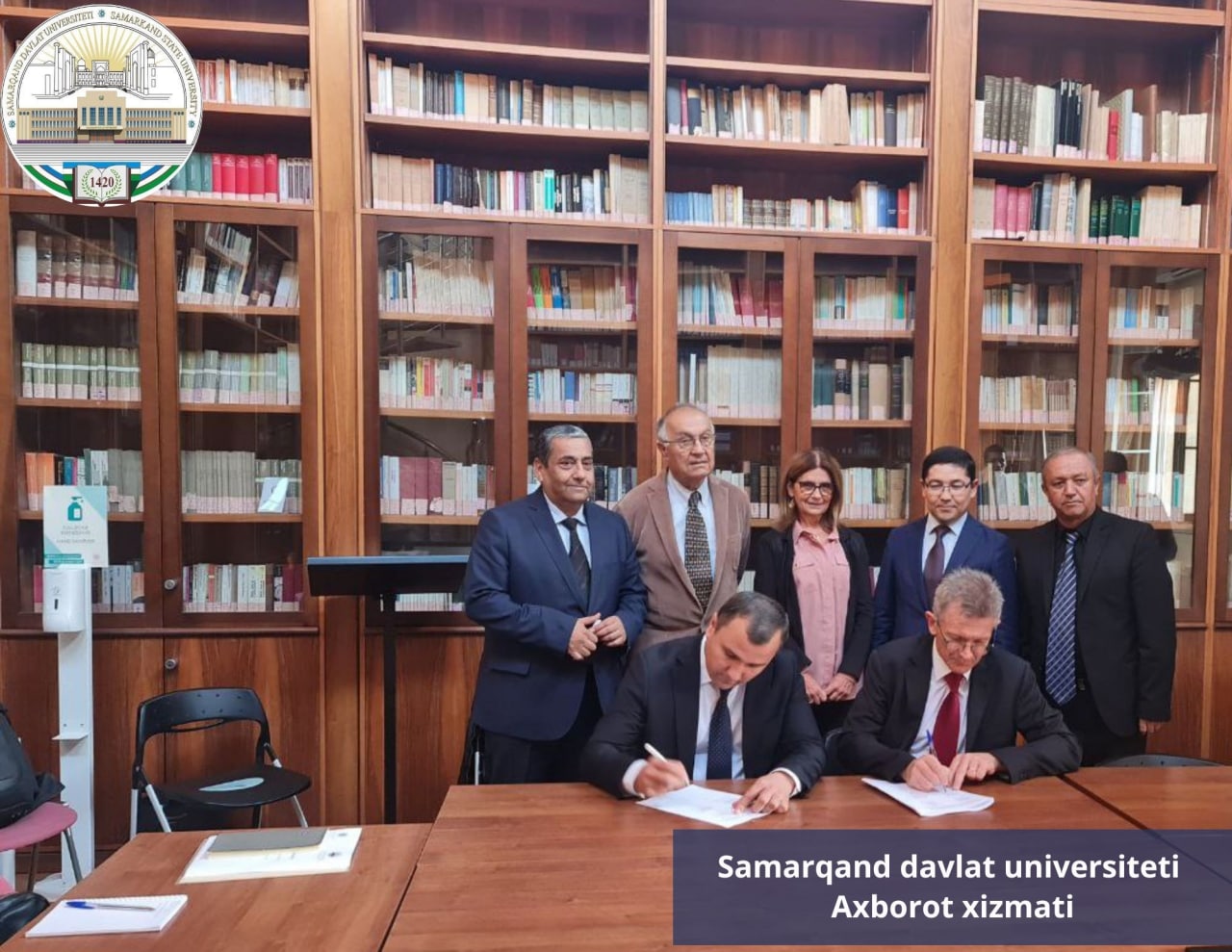
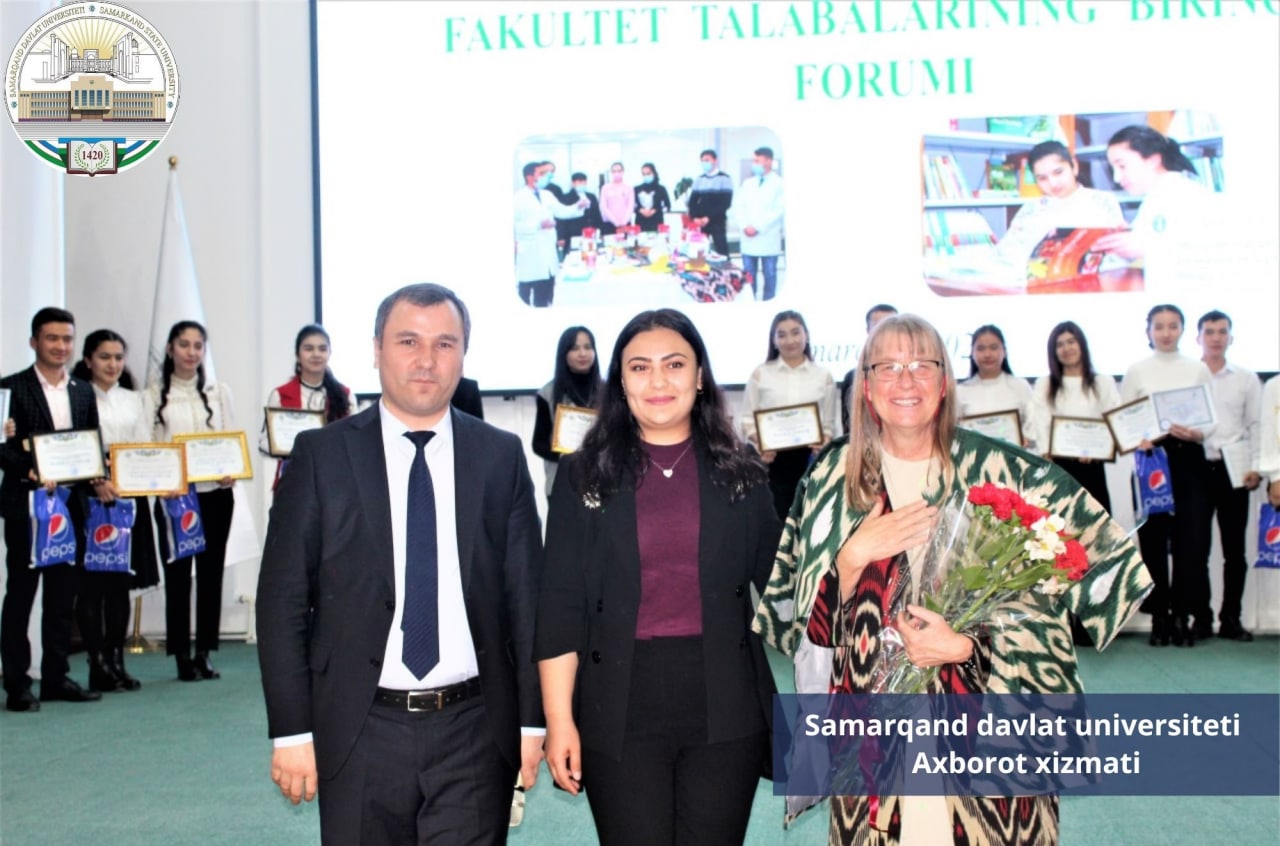
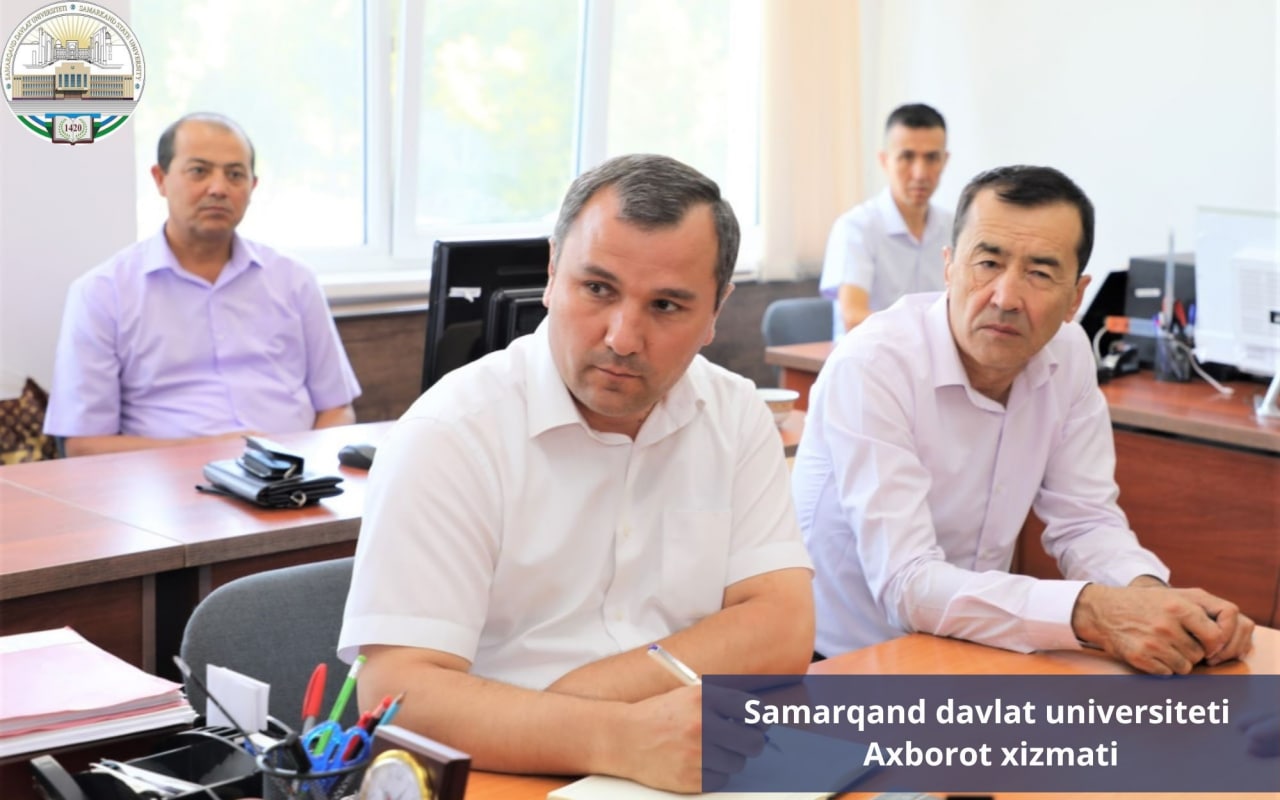
Interview with Iroda Bekmurodova
information service employees
Samarkand State University

